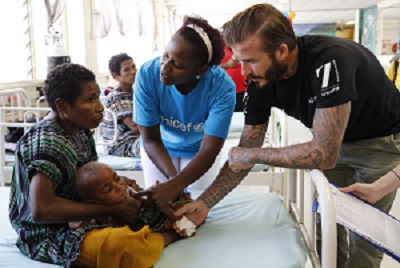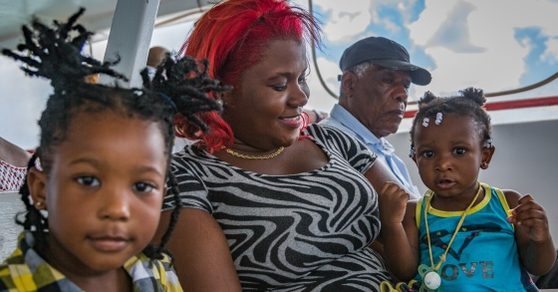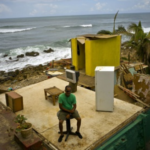PANAMA CITY — Thousands of children, adolescents and their families affected by the devastating effects of Hurricanes Irma and Maria, six months ago, in the Eastern Caribbean islands, Cuba and Haiti have been supported by UNICEF and its partners thanks to the $11.5 million raised through international donations during this time.
Despite humanitarian efforts, there is still much work to be done to return the affected areas to normal, with water, sanitation and infrastructure reconstruction a priority. UNICEF continues to work on the ground, whilst at the same time preparing for the arrival of the new hurricane season with the aim of minimizing potential damage and impact on the most vulnerable areas.
“So long children are in need or in danger, we will continue working tirelessly so that everyone can look to the future with hope,” said María Cristina Perceval, Regional Director of UNICEF for Latin America and the Caribbean.
In September 2017, at least 1.4 million people, including 357,000 children, were affected by Irma and Maria, two powerful category 5 hurricanes, which caused destruction on their way through Anguilla, Antigua and Barbuda, Cuba, Dominica, Haiti, the British Virgin Islands and Turks and Caicos. Following the storms, UNICEF responded immediately, mobilizing supplies and human resources to meet the needs of those affected and save lives.
UNICEF’s response, which continues, prioritized guaranteeing access to drinking water and hygiene, protection of children, psychosocial support for children affected and the continuity of education in safe spaces.
Results Oriented
With regards to water, sanitation and hygiene, more than 400,000 people in the affected areas, including children, have been given access to drinking water and purification tablets. These are fundamental actions that save lives and prevent the outbreak and transmission of waterborne diseases such as cholera and diarrhea.
In protection, around 16,000 children participated in psychosocial activities and 1,500 people were trained to continue carrying out these programs.
In early childhood education and development, 21,000 children and adolescents were able to stay within the education system thanks to UNICEF support in the reconstruction of schools and the deployment of temporary centers in the Eastern Caribbean Islands, while 1,800 children under 5 years old had access to safe learning environments. In Cuba, about 24,000 students received educational materials in their schools.
In addition, UNICEF and its partners launched a cash transfer system benefiting more than 4,600 of the most vulnerable families following the hurricanes.
Increased resilience
Along with these emergency response actions, UNICEF and its partners maintain their work in the Caribbean to contribute to an inclusive, equitable and prosperous region that guarantees the provision of quality services and support to children in the areas of education, child protection, social protection and resilience to guarantee the realization of children’s rights.
Facing the start of the next hurricane season in the region, which officially begins on 1 June, UNICEF is focusing on strengthening the capacity of children, communities and systems to adapt and recover from stress and impacts, through improved capacities and reduced vulnerability at national and community level. The objective is to mitigate the impact on boys, girls and women and ensure a rapid return to normality.
The main international donors for the emergency caused by hurricanes Irma and Maria in the Caribbean in 2017, in addition to the National Committees of UNICEF and individual donors on-line, were Canada, CERF, ECHO, Kuwait, Lithuania, SIDA – Sweden and Carnival Cruises.
About UNICEF
UNICEF works in some of the world’s toughest places, to reach the world’s most disadvantaged children. Across 190 countries and territories, we work for every child, everywhere, to build a better world for everyone.
For more information about UNICEF and its work for children visit www.unicef.org/lac





